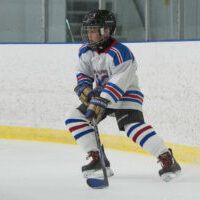

TMSN Members
Division Ambassadors and Team Managers are added at the beginning of each season here.
Key Contacts for TMSN Members
Board members, with roles listed, can be found here.
Staff and key program leads are listed here.
The beginning of a new season is always an exciting time and we want to make sure this feeling is shared by all of our team managers as well! This section will cover all the elements you need to know about your role, Vancouver Thunderbirds Policies and Procedures and provide the key connections that will prove vital over the season.
Role of the Team Manager
The Team Manager is the central hub of information and oversees the flow of communication between players, coaches, parents as well as support systems such as the Vancouver Thunderbirds Hockey Board of Directors, Pacific Coast, and BC Hockey. You will be the one who knows what is going on - and we hope that between the Board Members, staff and your TMSN group of team and division ambassadors, you will have all the information you need or know who to reach out to for the answers.
We want our team managers to have a fun experience, and we realize a big part of that is how the association sets you up for success. The TMSN resource section of the website was created to provide you with a go-to place for the key pieces of information you may need throughout the season. While there will be a fair amount of information over the pages, it will not be exhaustive so the most important part of your role, aside from perhaps making sure the players and coaches know when the ice times are, is to ask questions when you aren't sure.
We have engaged with TeamSnap so every team will have their own access to the app which is tied to the team page on the website. All communication to the teams should flow through the Association's subscription to TeamSnap, making your life easy.
The below duties don't cover everything – and many can be delegated to other team parents – but the team manager is responsible for coordinating the duties and overseeing that they are completed.
List of duties in no particular order:
- Communication of a team schedule.
- Work with the head coach to organize exhibition games, tournaments
- Obtain necessary equipment and supplies for the team
- Develop an operating budget and present to the team or appoint a team treasurer to manage this aspect.
- Coordinate team financial matters
- Secure officials for all home games: or appoint a referee scheduler to manage this for the team.
- Payment of officials for all home games: can appoint a volunteer
- Communicate with opposing team managers in regards to games
- Coordinate game sheets and distribute to appropriate parties
- Team Managers should work with the team to assign/divide up managerial responsibilities
While you may feel like you simply don't have the time to do so, we highly recommend you do a bit of light bed time reading and peruse through the PCAHA rule book - paying particular attention to the sections that cover Suspensions (starting on p. 131).
Almost every question you will have or be asked will go back to the rule book, so the more familiar you are with it, the smoother your season will go.
Vancouver Thunderbirds Hockey Policies and Procedures
There are a number of policies and procedures for the Association - all of which you should read before the start of each season whether this is your first or 10th season as a team manager. Policies can be revised by the Board of Directors at any time and it is important to refresh your memory on these and use them as a point of reference throughout the season. While the full list can be found here, there are a few key ones that play into the team environment the most:
P-5 Jerseys & Equipment Supplied by the Vancouver Thunderbirds Hockey Policy
P-12 Coach Duties and Responsibilities Policy
P-13 Participation in Tournaments
P-16 Harassment and Abuse Policy
P-19 Recreational Team Selection Policy
Team Officials/Communication & Locker Room Policy
Two Deep Rule
For the 2017-18 season, we will be asking our teams, through the head coaches, to ensure the "two-deep" rule is followed in all situations. We will be asking our team managers to provide support through reminding the coaches that:
- Dressing rooms must be supervised at all times using the “Two Deep Method” at all time – so that, when any and all players under the age of 19 are in the team dressing room, before, during and after a game or practice, a minimum of two adults (either team officials or designated parents) shall be present in the dressing room. One must be a team official but the other can be a parent.
- Players are NEVER to be left unattended at any time.
This role is not meant to be Big Brother watching, but it does need to be an oversight of the behavior in the room. There are a number of conversations that begin with innocence that quickly can turn into something that makes one or more players feel uncomfortable and the adults need to know it is ok to speak out and tell the players the current conversation needs to stop. This can be something easy to recognize (eg one player drawing attention to a physical feature of another player) or something that may be a little less obvious (eg a player saying that a certain activity or team in another sport that another player may engage in or be part of is inferior). We want the dressing room to be a safe environment, for all players in spite of gender, religion or sexual orientation, and ensuring the parameters of appropriate conversation is set right from the beginning will lead to a much better experience over the season.
